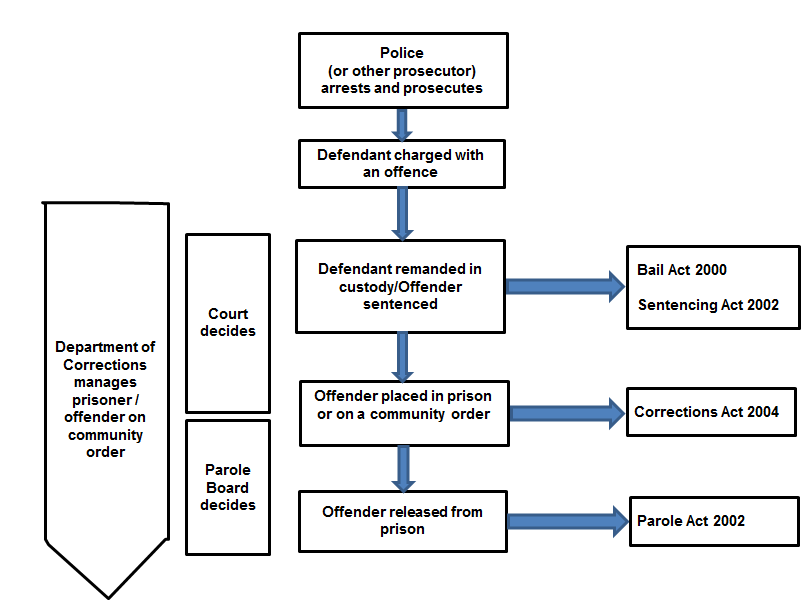Overview of key legislation
Four main pieces of legislation govern the work Corrections does:
There’s also secondary legislation associated with these primary Acts that determines how the Department functions. This includes the Corrections Regulations 2005.
Relationship between key pieces of legislation
The different Acts apply at different stages in the criminal process.
The Bail Act sets out how someone charged with an offence can be dealt with before their trial (or appeal), and the Sentencing Act sets out how they can be dealt with if found guilty.
The Courts are generally responsible for making key decisions (orders) under these Acts. However, Corrections (and in some cases a private contractor) is responsible for managing the custody orders and most community orders the Courts make in this way. The Corrections Act sets out how this should be done.
The Parole Act applies when it is time to consider releasing a prisoner. The Parole Board is responsible for making key decisions under this Act, but Corrections is again responsible for managing offenders according to the directions of the Parole Board.
CAPTION: Points in the criminal process where the different Acts governing the work of Corrections apply.


